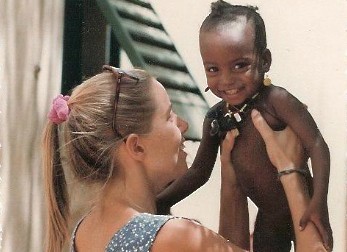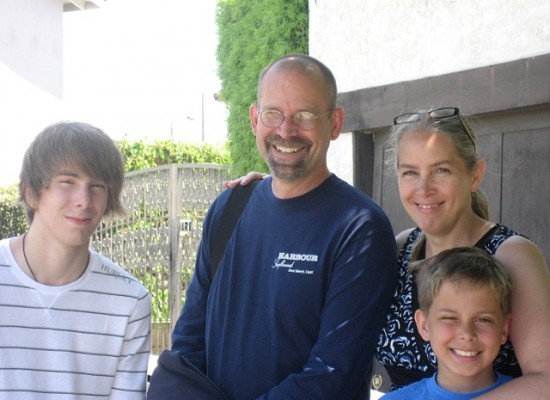“I arrived in Niger, West Africa to teach high school English. It was in the midst of this pain and beauty that I learned about friendship and leadership.”
Rebecca Bowlen is an English teacher at Ketchikan High School. She attended the Spring 2013 Talk Story, Write Story workshop in Ketchikan.
LEADERSHIP
Project Issaka
Several months after graduating with an English degree, Peace Corps deemed me worthy of joining their ranks as a volunteer. Soon I arrived in Niger, West Africa to teach high school English. And while it was here that the seeds of a successful teaching career took root and flourished under the Saharan sun, it wasn’t until I became immersed in a secondary project did I consciously begin to recognize myself as what one would call a leader.
At the time, all Peace Corps teachers were required to complete one project during their break from the classroom. Knowing my personal interest in health care, my friend and training bunkmate, Deb, invited me to work with her at a recuperation clinic for malnourished infants and children. Skeptical of my fortitude in the face of physical disease, I reluctantly agreed. Ever the intuitive pragmatist, Deb recognized my reluctance for what it really was — fear — and immediately crafted a plan to bolster my confidence and effectiveness while under her tutelage. Though she put me through the paces of the basics such as weighing babies and keeping nutritional charts up to date — in Hausa and French, no less — she also gave me a personal project of my own. That project turned out to be Issaka.
Issaka and his grandmother had arrived at the clinic a few weeks before me. With diseased gums, he could barely eat. Malnourished and diagnosed with scurvy, Issaka was three years old and could not walk. While touring the recuperation tents one sweltering afternoon, Deb introduced me to Issaka’s grandmother. Though taught how to administer his medication and exercise Issaka’s legs, the grandmother was unsure and suspicious of its effects. According to Deb, I was going to help change that. I was to be their teacher.
That evening, my self-doubt overshadowed any confidence I had built from working mornings at the clinic. However, Deb’s faith in me never wavered. She reminded me of her observations at my school; she encouraged me to instruct and guide my new “students” in much the same way I did in the classrooms where I taught. Our discussion lasted long into the night. One could understand the frustration and the encroaching hopelessness of the job. For every child saved at the clinic, there were a dozen who didn’t make it. It was time to acknowledge the success stories, no matter how few we encountered. Both of us hoped Issaka would be one of them.
For the remaining few weeks, mornings were spent in the clinic weighing babies and updating nutritional charts, and afternoons were spent with Issaka. Warming to my daily visits, my clumsy attempts at conversational Hausa soon had Issaka giggling and his grandmother smiling. With her blessing, Issaka and I toured the tents, playing with some of the other children. Occasionally, Issaka would try to stand on wobbly limbs, his efforts improving each day.
On my last day with Issaka, he was able to walk short distances, but sitting and standing on his own proved to be difficult. That task would take some time. When Deb and I met a month later, she told me Issaka left the clinic walking on his own next to his grandmother. He returned home to his village a healthy child. To this day, I often think of Issaka. Did he thrive and go to school? Was he able to survive yet another devastating drought that all too often afflicts his country? And though I will never know, I still hold on to that glimmer of hope that Issaka has lived a healthy and productive life.
While working with Deb at the clinic, I conducted numerous baby weighings and home health visits. I became more fluent in Hausa and French. I taught health lessons and mastered the endless filing system. I was vomited, bled, urinated, and defecated on countless times. Years later, I still find it hard to believe I lived and worked in a part of the world that is both so painfully harsh and heartbreakingly beautiful. But it was in the midst of this pain and beauty that I learned about friendship and leadership — and that it isn’t as much about the title as much as it is about working behind the scenes to make a difference, no matter how small the outcome.


